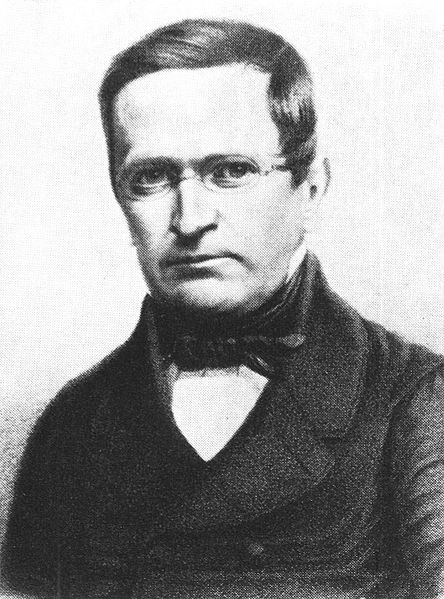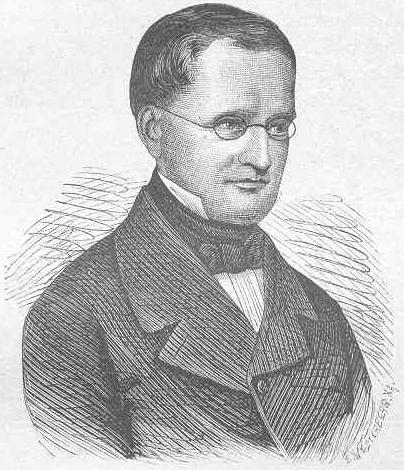<Back to Index>
- Aeronautics Pioneer Hugo Junkers, 1859
- Composer Giovanni Pierluigi da Palestrina, 1525
- Minister President of Prussia Otto Theodor von Manteuffel, 1805
PAGE SPONSOR


Otto Theodor von Manteuffel (3 February 1805 - 26 November 1882), was a conservative Prussian statesman. Manteuffel was born in Lübben (Spreewald), into an aristocratic family.
From 1819 he attended the Landesschule Pforta and in 1824 - 1827 studied jurisprudence and cameralism at the University of Halle, where he also joined the Corps Saxonia Halle, a duelling Studentenverbindung in the Kösener Senioren - Convents - Verband (KSCV). In 1830 started a law clerkship. In 1833 he became Landrat (local administrator) of the district of Luckau, in 1841 he was made an Oberregierungsrat (a senior administrative position) in Königsberg and in 1843 was made Vice - President of the government in Stettin. In 1844 the Prince of Prussia, who was then the head of the Ministry of State, appointed him there as an expert councillor (vortragender Rat). Soon thereafter he was also made a member of the royal Council of State. He worked in the field of finance until in 1845 he was made Director at the Ministry of the Interior. The Vereinigte Landtag of 1847 (an assembly of the members of Prussia's provincial legislatures) gave him an opportunity to demonstrate his parliamentary skills, whereupon Manteuffel showed himself as a champion of the bureaucratic political system and an opponent of constitutional liberalism.
On 8 November 1848 he entered the cabinet of Friedrich Wilhelm, Count Brandenburg, as Minister of the Interior. For the next ten years, he held various positions in the government and was high in the favor of King Friedrich Wilhelm IV. Manteuffel had a major part in drafting the Prussian constitution of 5 December 1848. But it was also he who contributed to the announcement of 7 January 1850, which repealed significant provisions of that constitution; he also defended it in Parliament. When he was temporarily entrusted with managing foreign affairs after the Count of Brandenburg died, he took part in the negotiations for the Agreement of Olmütz in November 1850, and surrendered the constitutional rights of Kurhessen and Holstein to the Austrian restauration zeal. "The strong man takes a step back"; these were the words with which he sought to calm the members of the recently re-established Bundestag who were unhappy with these measures. On 19 December 1850 he was permanently appointed Prussian Prime Minister and Foreign Minister, in which function he took part in the negotiations for the Treaty of Paris of 1856. He remained in this post, leaning more and more on the support of the reactionary party, until October 1858, when the king gave up the throne, and the Prince of Prussia (afterwards Emperor William the Great) became regent.
On 6 November he and the entire cabinet were dismissed. He thereupon withdrew to his estate in Lausitz, and after being elected by Görlitz entered the Prussian House of Representatives, but did not participate in the proceedigs in any spectacular way. From 1864 he was a member of the Prussian House of Lords, he repeatedly worked to advance reactionary principles.
On 6 February 1850 he was made an honorary citizen of Berlin, and the Manteuffelstraße in Kreuzberg was named after him. In the southern part of Wlhelmshaven another Manteuffelstraße was opened on 17 June 1869 in the presence of King Wilhelm I. By the street lay the Manteuffelplatz (Exerzierplatz). He was also an honorary citizen of Danzig, Brandenburg an der Havel, Stettin and all the towns of the Niederlausitz.
He died at Gut Krossen in Luckau in Niederlausitz.